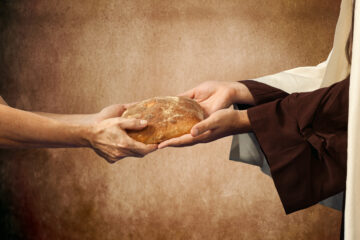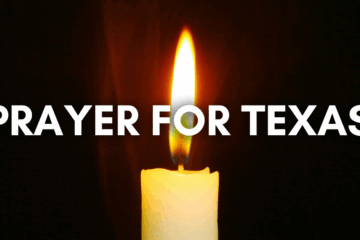Ioannis Karavidopoulos, Professor Emeritus of New Testament Hermeneutics, A. U. Th.
The epistle reading for the Sunday of All Saints is from the Epistle to the Hebrews (11, 33-12, 2) and describes the feats of faith of holy men and women in the Old Testament, who compass us round about like a cloud and are luminous markers on our path towards our destination, towards the kingdom of God.
Some of these heroes and heroines of the faith mentioned in the epistle reading overcame the forces of foreign kings. Among these were Gideon, Barak, Sampson, Jephthah and others, whose achievements are described in the Old Testament book of Judges. When they held responsible office, they governed the people justly; they managed to fulfil God’s promises; in the cases of David and Daniel, they stopped the mouths of lions; they extinguished the force of fire, as in the case of the three young men in the furnace; they regained their strength after illness, as the ailing King Hezekiah did; they proved to be mighty in war, putting to flight hostile armies, through the power of God. All of this is mentioned at many points in the Old Testament narrative, as well as in the history of the Church.
Others, because of their faith, died as martyrs on a circular instrument of torture called a ‘drum’. They were stoned, as the prophets Zechariah and Jeremiah were; they were sawn in two, as Isaiah was, according to tradition; like Saint John the Baptist, they were beheaded. Persecuted they wandered the wilderness, mountains and caves, dressed in sheep or goat hides, as did Elijah, Elisha, David and others.
All those who are mentioned or hinted at by Saint Paul and who either triumphed through their faith or were martyred for it, are the signposts for Christians, the lead runners in the relay race of the faith, who, through their victories, have brought to us the baton of noble ideals. They’ve handed it over to us, so that we can continue the struggle. All these holy men and holy women, as well as many others, known and unknown, whose memory the Church honors today, underline the responsibility which falls onto the shoulders of Christians.
In a world where the dominant feature is the demolition of values, doubt regarding the reality of otherworldly reality, rationalism, trust in machines, and the deification of technology, Christians are being asked to consider which chain of nobility and heroism they belong to as a link. What is the ultimate goal of their rounds of combat? Who is the judge of the tournament? It would be very easy for people, out of carelessness or indifference, to break a link in the heroic history of the faith by adapting to the seductive forces of the times. And let’s not deceive ourselves: it’s difficult- and therefore all the more important- for us to remain faithful to the principles and ideals of the Christian faith, perhaps thereby losing our prospects of worldly advancement. This is the difficult path shown to us today by all the saints, those of bygone times and today, small and great, known and unknown. And we’re called upon to be worthy successors to them in the centuries-long relay race of the Christian life.
Source: pemptousia.com




0 Comments